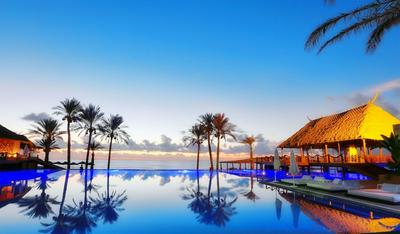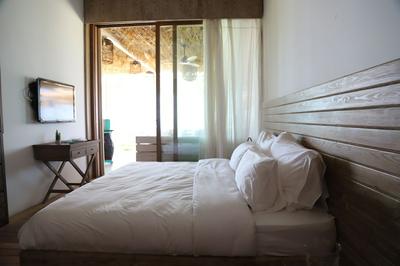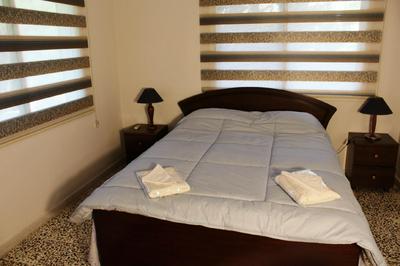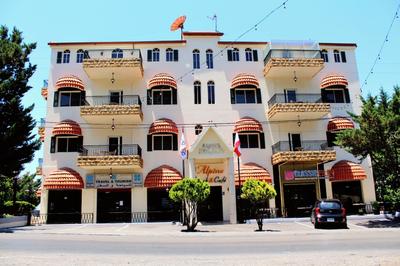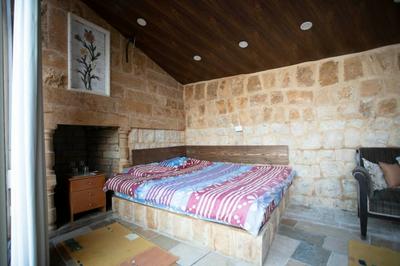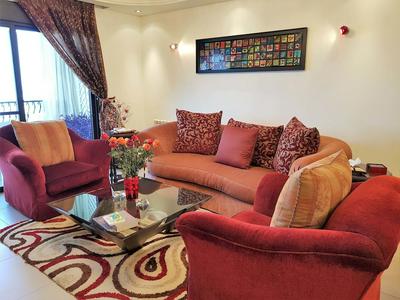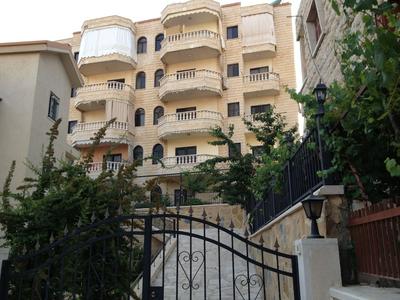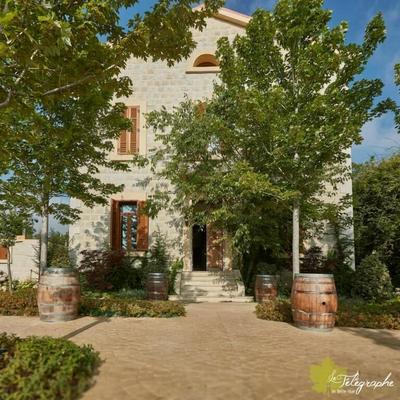When to visit Beirut?
Beirut boasts a Mediterranean climate, characterized by hot, dry summers and mild, wet winters. The best time to visit varies, depending on what you seek from your trip.
Summer, from June to September, is peak tourist season. This is when the city comes alive with beach-goers flocking to the coastline to soak in the sun. The vibrant nightlife offers numerous parties and events, making it a great time for those looking to enjoy both daytime and evening activities. Just be ready for high temperatures, often soaring above 30°C (86°F).
Autumn, particularly October and November, offers milder weather and a touch of golden foliage along the city's outskirts. This season is perfect for exploring historical sites and indulging in local culinary delights, as many traditional food festivals take place. Expect less of a tourist crowd, making it easier to enjoy what the city offers.
Spring, from March to May, is another lovely time to visit. Weather is pleasantly warm, with flowers blooming across the city. Various cultural and religious holidays occur in this season, providing a unique insight into local traditions.
Lastly, winter (December to February) is cooler, with temperatures ranging from 10°C to 20°C (50°F to 68°F). While some attractions may have reduced hours, it is an excellent time to explore museums and enjoy warmth indoors. If you're a skier, nearby resorts like Mzaar Kfardebian are a quick drive away, combining Beirut's urban charm with alternative winter sports.
How to get to Beirut?
Getting to Beirut is relatively straightforward, whether you choose to fly, bus, train, or drive.
The main gateway to Lebanon is Beirut Rafic Hariri International Airport (BEY), located just 9 kilometers (5.5 miles) from the city center. It offers connections to various international destinations, making it convenient for travelers. Car rentals and taxis are readily available at the airport to transport you into the city.
For bus travelers, numerous intercity buses operate from neighboring countries, including Syria and Jordan, providing an affordable option. The cost and travel time can vary; buses from Damascus, for instance, take around 2-3 hours.
If you're considering driving, Lebanon's road network connects to various Mediterranean cities. The drive from Tripoli takes approximately 2 hours, while driving from Sidon will take about an hour. Be cautious of road conditions and traffic, which can be hectic.
While there are no passenger train services into Beirut, buses are a reliable alternative for domestic travel within Lebanon, connecting you to other major cities quickly.
Tourist activities in Beirut
Beirut is a city rich in culture, history, and a vibrant social scene that caters to all sorts of travelers. Start your day by exploring the National Museum of Beirut, which houses priceless artifacts that narrate Lebanon's ancient history. Afterward, take a stroll along the Corniche, a beautiful waterfront promenade ideal for people-watching and soaking in the seaside breeze.
The bustling Hamra district is perfect for shopping, whether you're hunting for local artisans or international brands. Don’t miss the vibrant Souk El Tayeb, where you can taste fresh food and buy local produce.
For outdoor enthusiasts, a visit to the Pigeon Rocks at Raouche is a must. These natural formations offer stunning views, and while you're there, enjoy nearby cafe terraces to relax.
As the sun sets, Beirut’s nightlife comes alive. Head to trendy areas like Mar Mikhael and Gemmayzeh for an array of bars and lounges. You can find laid-back spots or lively nightclubs depending on your mood. Cultural activities abound, too, with numerous theaters and galleries showcasing Lebanese art and performances.
No visit is complete without indulging in the culinary delights of Beirut, from street food like Manakish to fine dining at oceanfront restaurants.
Events and festivals
Beirut hosts a vibrant selection of events and festivals throughout the year, reflecting its rich cultural tapestry.
One of the most notable is the Baalbeck International Festival, typically held in July and August in the ancient Roman city of Baalbek, just a couple of hours from Beirut. This festival showcases performances by local and international artists against the backdrop of ancient ruins.
In April, the Beirut Art Fair attracts contemporary art lovers from around the world, turning the city into a creative hub for galleries and exhibitions. The festival highlights Lebanon's burgeoning art scene and promotes cultural dialogue.
For foodies, the Beirut Food Festival usually takes place in December, celebrating local cuisine with tastings, workshops, and street food. It’s perfect for those wanting to sample traditional Lebanese dishes.
During the holiday season, Beirut transforms into a magical place with festive vibes. Make sure to visit the Christmas markets and enjoy the New Year’s celebrations, which feature fireworks and concerts, especially around the Rue Verdun area.
Finally, the Jounieh International Festival, held in the summer, offers concerts, shows, and a picturesque fireworks display by the bay, drawing both locals and tourists.
Family and kids activities
Beirut is a cheerful city for families, full of fun activities for kids of all ages. Start with a visit to the Fun City amusement park, which offers rides and games perfect for toddlers and older children. The park is located in the heart of the city and is a great way to spend an active day with the family.
If you're seeking exploration and education, head over to the Science Museum of Lebanon. Interactive exhibits make science fun, and kids can enjoy hands-on activities that ignite their curiosity.
For outdoor adventures, the Sanayeh Garden is a lovely green space ideal for picnics, offering playgrounds and plenty of room for kids to run and play. Nearby, the Beirut Aquarium presents the fascinating marine life of the region, encouraging conservation and awareness about sea animals through engaging exhibits.
On weekends, families can enjoy the Beirut Souks, where street performances and cultural events often take place, providing opportunities for kids to engage in art or music activities.
Lastly, special events like craft workshops or storytelling festivals often pop up throughout the year, so check local listings to plan your visit accordingly!
What to see in Beirut?
Beirut is brimming with attractions that highlight its rich heritage and stunning landscape. Some must-see sites include:
- The National Museum of Beirut: Home to archaeological treasures that depict Lebanon's ancient civilizations.
- Raouche (Pigeon Rocks): Iconic natural rock formations offering stunning coastal views and great spots for photos.
- The Mohammad Al-Amin Mosque: A spectacular landmark with stunning architecture and a peaceful atmosphere.
- Gemmayzeh Street: Famous for its vibrant nightlife, art galleries, and traditional restaurants.
- The Beirut Souks: A bustling commercial area blending history with modernity, perfect for shopping and dining.
- Zaitunay Bay: A lively waterfront area with restaurants, cafes, and stunning views of the marina.
- Martyrs' Square: A historically significant square which symbolizes Lebanon’s struggles and ambitions, often hosting events.
- The Sursock Museum: A contemporary art museum celebrated for its beautiful building and diverse exhibitions.
Each site offers its unique glimpse into the heart and soul of this iconic city.
Accommodation in Beirut
Beirut offers a variety of accommodation options to suit diverse tastes and budgets. From luxury hotels to cozy hostels, there's something for everyone.
For those seeking upscale experiences, neighborhoods like Downtown Beirut and the Corniche boast high-end hotels like the Four Seasons and Le Gray, offering stunning sea views and top-notch amenities.
Mid-range travelers can find comfort in boutique hotels or guesthouses in areas like Hamra and Achrafieh, where you’ll find charming places like the Smallville Hotel or Hotel Albergo. Both offer a local flavor with easy access to dining and attractions.
Adventurous backpackers will appreciate numerous hostels scattered throughout the city, especially in Hamra. Options like The Backpackers Hotel offer budget-friendly rates and a chance to meet fellow travelers.
For a more home-like experience, consider renting an apartment or Airbnb, particularly around Mar Mikhael and Gemmayzeh. These neighborhoods offer vibrant atmospheres filled with cafes and shops, giving you a taste of daily Beirut life.
Prices vary widely, with mid-range hotels starting at around $70 to $100 per night, while luxury options can easily reach $300 or more. Always book in advance, especially during peak seasons.
Important numbers and information
- Emergency numbers: Police: 112, Fire: 125, Ambulance: 140
- Tourist Information Center: Located at Beirut City Center, Phone: +961 1 960 683
- Main Hospitals: American University of Beirut Medical Center: +961 1 374 374, Hôtel-Dieu de France: +961 1 612 222
- Beirut Rafic Hariri International Airport: Phone: +961 1 628 400
- Public Transport Information: Bus services information available at major bus stations.
- Taxi apps: Careem, Uber
- Currency: Lebanese Pound (LBP)
- Payment methods: Credit cards widely accepted; cash is still preferred in many local shops.
Where to eat?
Beirut is a culinary haven, offering a diverse range of local and international cuisine. Lebanese food is famous for its rich flavors, fresh ingredients, and healthy choices.
For traditional dishes, head to popular areas like Gemmayzeh and Hamra, where you can enjoy classic Manakish for breakfast or indulge in a hearty mezze platter at places like Al Fawda or Tawlet.
For a more upmarket dining experience, restaurants such as Le Chef and Em Sherif serve exquisite interpretations of Lebanese cuisine that highlight local flavors. Expect to find dishes like kibbeh, tabbouleh, and shawarma bursting with fresh herbs and spices.
Beirut also boasts excellent international restaurants, with choices ranging from Japanese sushi to Italian trattorias. Zaitunay Bay is a trendy area for waterfront dining, featuring a variety of cafes and restaurants with picturesque views.
Street food is another must-try experience. Whether it’s the traditional falafel sandwich or creamy hummus, you’ll find numerous stalls around the city. A typical meal can range from $5 for street food to $20 or more at fancy restaurants.
Nightlife – where to go out?
Beirut's nightlife is legendary, offering a mix of vibrant bars, trendy clubs, and lively street scenes. The city transforms after dark, showcasing its vivacious spirit.
For a unique experience, start at the beloved Rooftop Bar located in the trendy Mar Mikhael district, offering stunning skyline views and craft cocktails. The ambiance is perfect for unwinding with friends as the sun sets.
If you’re in the mood for dancing, head to The Basement, an underground club famous for its eclectic music and lively crowd. It’s a hub for electronic music enthusiasts, often hosting international DJs.
Another hotspot is Skybar, known for its upscale atmosphere and stunning views of the Mediterranean. It’s perfect for party-goers looking to dance the night away under the stars.
Gemmayzeh is the heart of nightlife, overflowing with bars and lounges that attract a chic crowd. Spots like Casablanca and The Barometer serve up creative cocktails and upbeat vibes.
Whether you opt for a laid-back evening or an all-out party, Beirut offers a nightlife experience like no other, blending tradition with modern energy.
Transport and taxis
Getting around Beirut can be an adventure in itself, with many options to explore the city. Public transport has improved over the years, although a bit chaotic, is affordable.
Buses are a popular option, running on set routes between major neighborhoods and cities. A single ride typically costs around 1,500 LBP, and tickets are purchased directly from the driver. However, it's essential to know your destination, as buses may not always have English signage.
For those wishing to use a more reliable form of transport, taxis are readily available. Ride-hailing apps like Uber and Careem have made getting around easier, with fares calculated by distance. Traditional taxis, however, often rely on negotiation for fares, so agree on a price before getting in.
Walking is also a great way to explore Beirut, especially in pedestrian-friendly areas like Hamra, Gemmayzeh, and the Downtown area.
Quick Tips:
- Always keep small change for bus fares.
- Confirm taxi rates before starting your journey.
- Be cautious when crossing streets, as traffic can be heavy.
Parking and public garages
Parking in Beirut can be challenging, given the busy roads and limited spaces. However, there are several options for parking both on the street and in public garages.
Street parking is available, but be cautious to check for signage regarding hours and fees, as local regulations may vary. Parking typically costs around 1,000 to 5,000 LBP per hour depending on the area.
Public garages are more reliable, especially in busy districts like Downtown, Hamra, and Gemmayzeh. Various garages offer short-term and long-term parking options, often with fixed rates. Some larger malls also feature secure parking facilities for their customers.
For drivers, it’s essential to stay aware of local driving customs and the hustle-bustle of traffic. Be patient, as traffic congestion is common during peak hours.
Overall, consider using public transport or taxis if parking seems daunting during your visit.
Surroundings of Beirut
Beirut's location makes it a fantastic starting point for exploring the majestic surrounding regions, each offering unique experiences.
One must-visit spot is the coastal city of Byblos, approximately 37 kilometers (23 miles) north of Beirut. Known as one of the oldest continuously inhabited cities in the world, it boasts ancient ruins, charming seaside cafes, and a vibrant market.
Another popular destination is Batroun, famous for its beautiful beaches and historic sites. Only about 50 kilometers (31 miles) from the capital, this town is ideal for a day of sunbathing, watersports, and enjoying fresh seafood at waterfront restaurants.
For nature lovers, the stunning Qadisha Valley, a UNESCO World Heritage site, is located about 90 kilometers (56 miles) northeast of Beirut. This breathtaking valley is known for its hiking trails, ancient monasteries, and picturesque landscapes.
If you're interested in skiing, the Mzaar Kfardebian ski resort, just over an hour's drive, offers a unique winter experience amid the scenic Lebanese mountains.
With so many nearby attractions, each day can lead you to a new adventure just outside Beirut!

